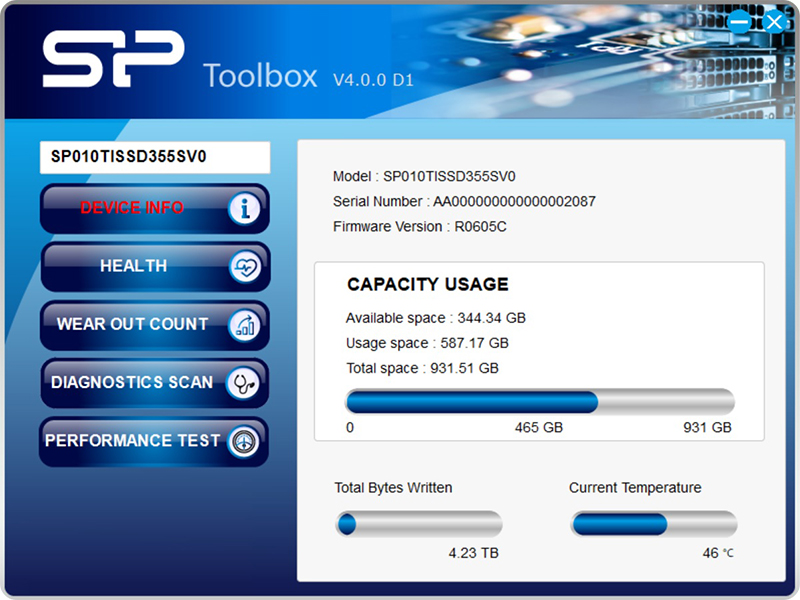Tom's Hardware Verdict
The Silicon Power US75 is a great all-around Gen 4 SSD, but it certainly has a lot of competition these days. Performance and power efficiency are both good to excellent, so it’s just a matter of pricing.
Pros
- +
Very power efficient
- +
Solid all-around performance
Cons
- -
Lots of competition
Why you can trust Tom's Hardware
If you’re looking for an inexpensive, efficient, and fast-performing SSD, the PCIe 4.0 Silicon Power US75 might just be up your alley. It uses a winning hardware formula that works great in laptops, desktops, and PS5s without taking risks. It has an attractive gold-and-black heatspreader design, which is better than nothing but not as good as the heatsink on the Addlink A93 or the second Lexar NM790 line. It punches above its weight in an increasingly crowded market that now includes the daunting Crucial T500, so it has to win not just on its merits but also on price.
It’s an exciting time for storage as incredibly fast SSDs are priced at all-time lows. This might change in 2024, and the roadmaps do have better hardware on the horizon. However, drives like the US75 are more than fast enough for the vast majority of use cases, including gaming. Capacity, at one time an issue for M.2 NVMe SSDs - once having 1TB or 2TB caps as well as much higher per-gigabyte costs for 2TB and up - no longer holds you back. There are plenty of affordable 4TB drives, with both TLC and QLC flash, to host even large game collections. The US75, in fact, offers a range of capacities up to 4TB, although 2TB is currently the highest available.
This is especially good news for laptop and PS5 owners. Many laptops need or benefit from single-sided drives, and now a range of SSDs manage that at 4TB, including the high-performance Samsung 990 Pro. The PS5 has baseline requirements with minor benefits derived from faster drives, so tossing in an inexpensive 4TB drive is the best way to go. If you’re on a desktop, well, you usually have the option to add a second NVMe SSD to dedicate to games. The US75 should be great for all these use cases, but it has to stand out with pricing or availability to catch your eye.
Specifications
| Product | 500GB | 1TB | 2TB | 4TB |
|---|---|---|---|---|
| Pricing | N/A | $53.97 | $97.99 | N/A |
| Form Factor | M.2 2280 | M.2 2280 | M.2 2280 | M.2 2280 |
| Interface / Protocol | x4 PCIe 4.0 / NVMe 2.0 | x4 PCIe 4.0 / NVMe 2.0 | x4 PCIe 4.0 / NVMe 2.0 | x4 PCIe 4.0 / NVMe 2.0 |
| Controller | Maxio MAP1602 | Maxio MAP1602 | Maxio MAP1602 | Maxio MAP1602 |
| DRAM | None (HMB) | None (HMB) | None (HMB) | None (HMB) |
| Flash Memory | YMTC 232-Layer TLC | YMTC 232-Layer TLC | YMTC 232-Layer TLC | YMTC 232-Layer TLC |
| Sequential Read | 7,000 MB/s | 7,000 MB/s | 7,000 MB/s | 7,000 MB/s |
| Sequential Write | 4,400 MB/s | 6,000 MB/s | 6,500 MB/s | 6,500 MB/s |
| Random Read | N/A | N/A | N/A | N/A |
| Random Write | N/A | N/A | N/A | N/A |
| Security | N/A | N/A | N/A | N/A |
| Endurance (TBW) | 300TB | 600TB | 1200TB | 2400TB |
| Part Number | SP500GBP44US7505 | SP01KGB44US7505 | SP02KGBP44US7505 | SP04KGBP44US7505 |
| Warranty | 5-Year | 5-Year | 5-Year | 5-Year |
The Silicon Power US75 will be offered in 500GB, 1TB, 2TB, and 4TB capacities. Only the 1TB and 2TB models are available at the time of review. These are at $53.97 and $97.99, respectively, making the 2TB the more attractive model. At 1TB, there are less-expensive alternatives with DRAM like the Crucial P5 Plus and Teamgroup Cardea A440 Pro, although the US75 is likely a better deal than some budget drives like the Addlink S90 Lite. At 2TB, however, the US75 is in a good spot. We recommend keeping a close eye on pricing as holiday sales are coming up, and there are indications that SSD prices could rise sometime in 2024.
The US75 reaches a maximum of 7,000 / 6,500 MB/s for sequential reads and writes, but there isn't an official IOPS rating on Silicon Power’s site. The Maxio MAP1602 controller is capable of 1M / 1M random read and write IOPS, and we would expect the US75 to match Silicon Power’s XS70. The five-year warranty has up to 600TB of write endurance per TB of capacity. This level of write endurance is standard, but we have seen better in many similarly-equipped SSDs such as the Teamgroup MP44. We don’t consider this an important factor for most users, but it might sway you if the drives are priced identically.
Software and Accessories
Silicon Power has a wide range of software available on its site for download, including cloning and recovery software. The primary application is the SP ToolBox, an SSD toolbox providing the basic functionality one would expect. This includes displaying system and drive information, including S.M.A.R.T., a diagnostic scan, and a performance test. It’s also possible to engage in a secure erase, and usually, this software is how you would check your drive’s firmware.
A Closer Look
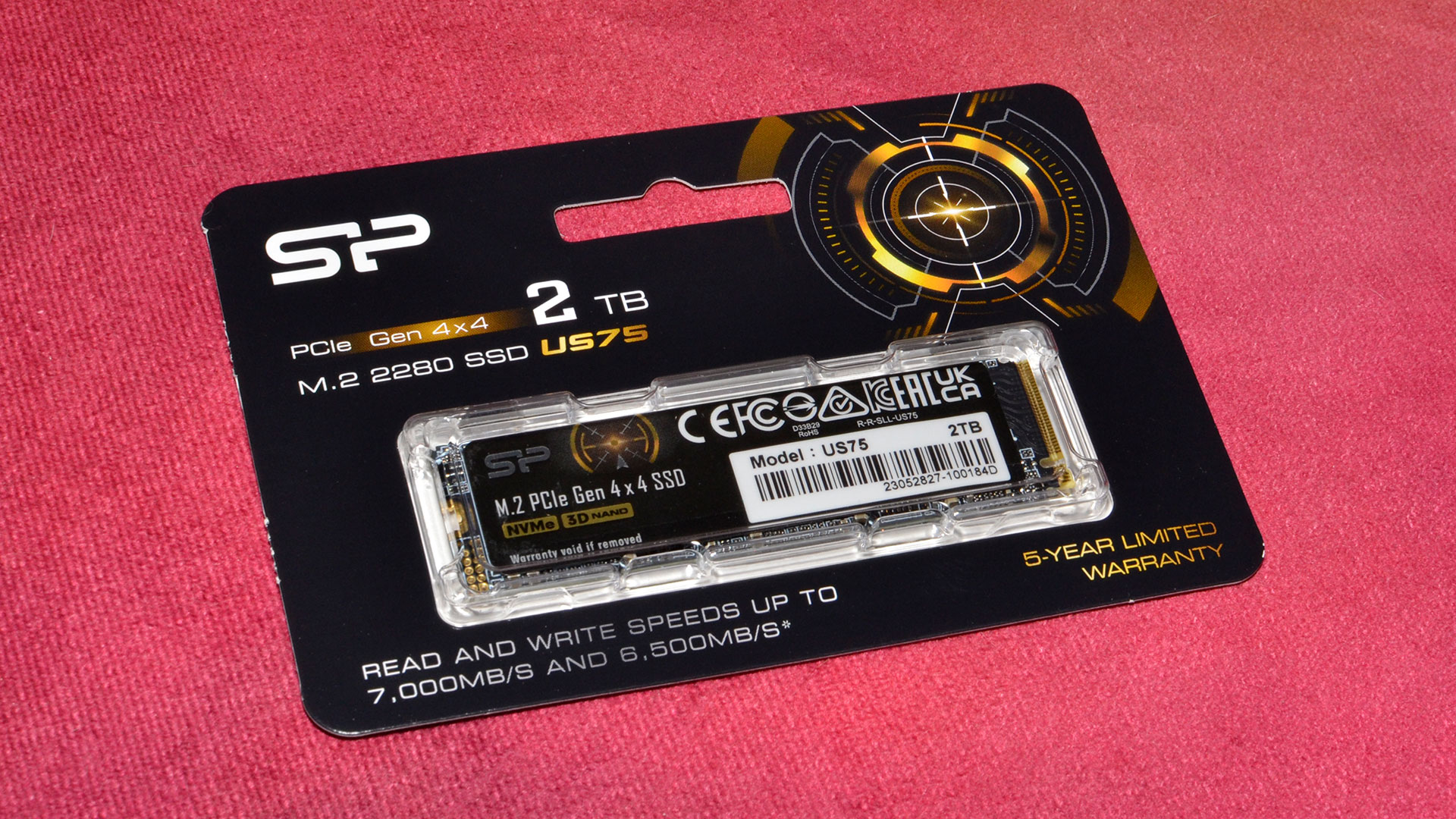
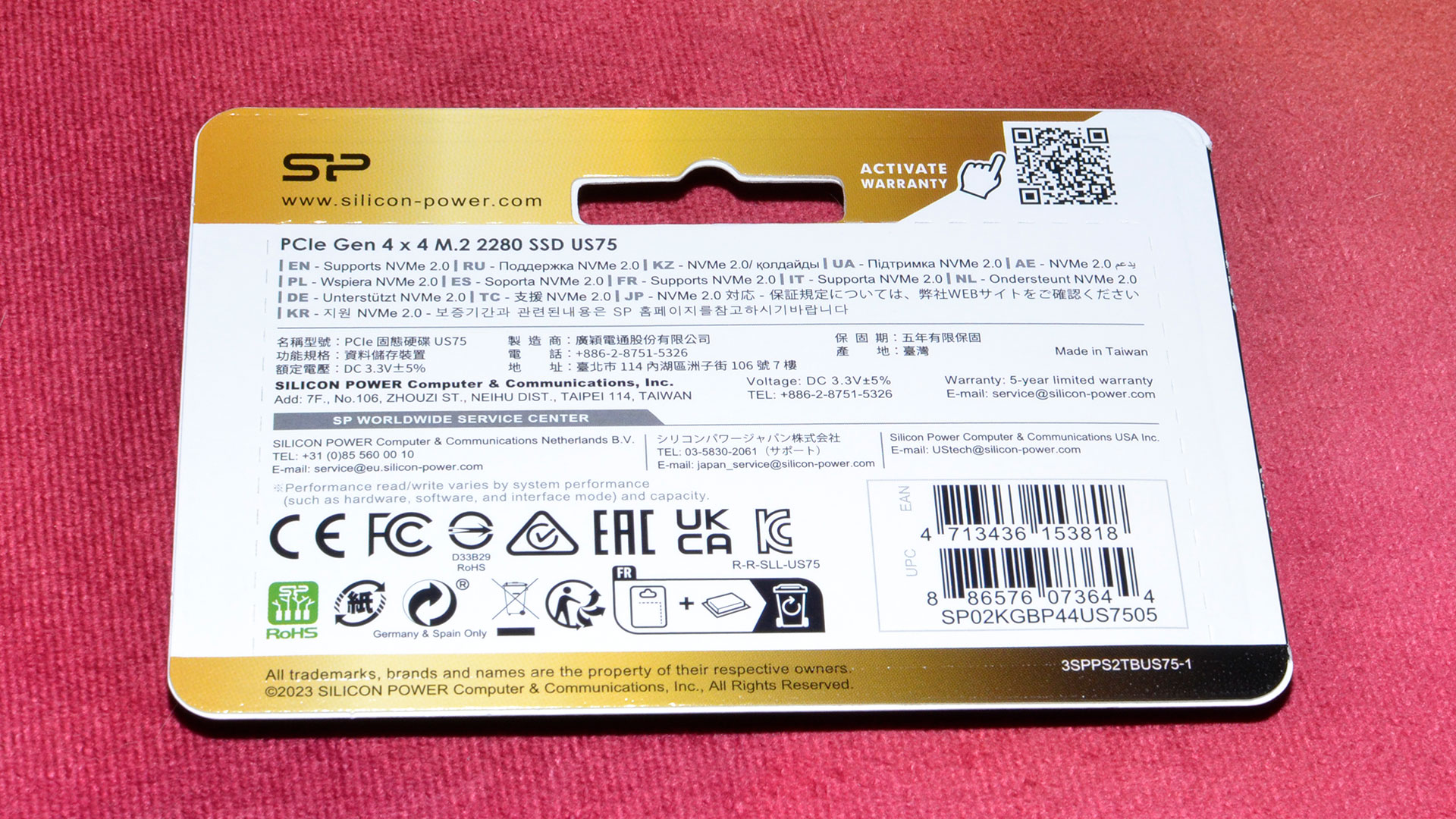
Nothing is too exciting about the packaging, but the rear side tells us this drive is NVMe 2.0-compatible. The Amazon listing at the time of review contained erroneous information due to SKU overlap, but we know the MAP1602 controller is compatible with 2.0. The drive uses the F3C revision of this controller instead of the F2C on the MP44, with the main difference being NVMe 1.4 to 2.0 support. The specification update doesn’t really offer anything to the consumer, but it’s best to communicate this upfront so that no one confuses it as a deficiency.
Get Tom's Hardware's best news and in-depth reviews, straight to your inbox.
The US75 does come with a heatspreader, but a heatsink would be much more effective. These drives tend to run efficiently and cool on the whole, so it’s not a huge problem, although the controller can get pretty hot with prolonged workloads. Thankfully, these drives are usually used for games and lighter workloads.
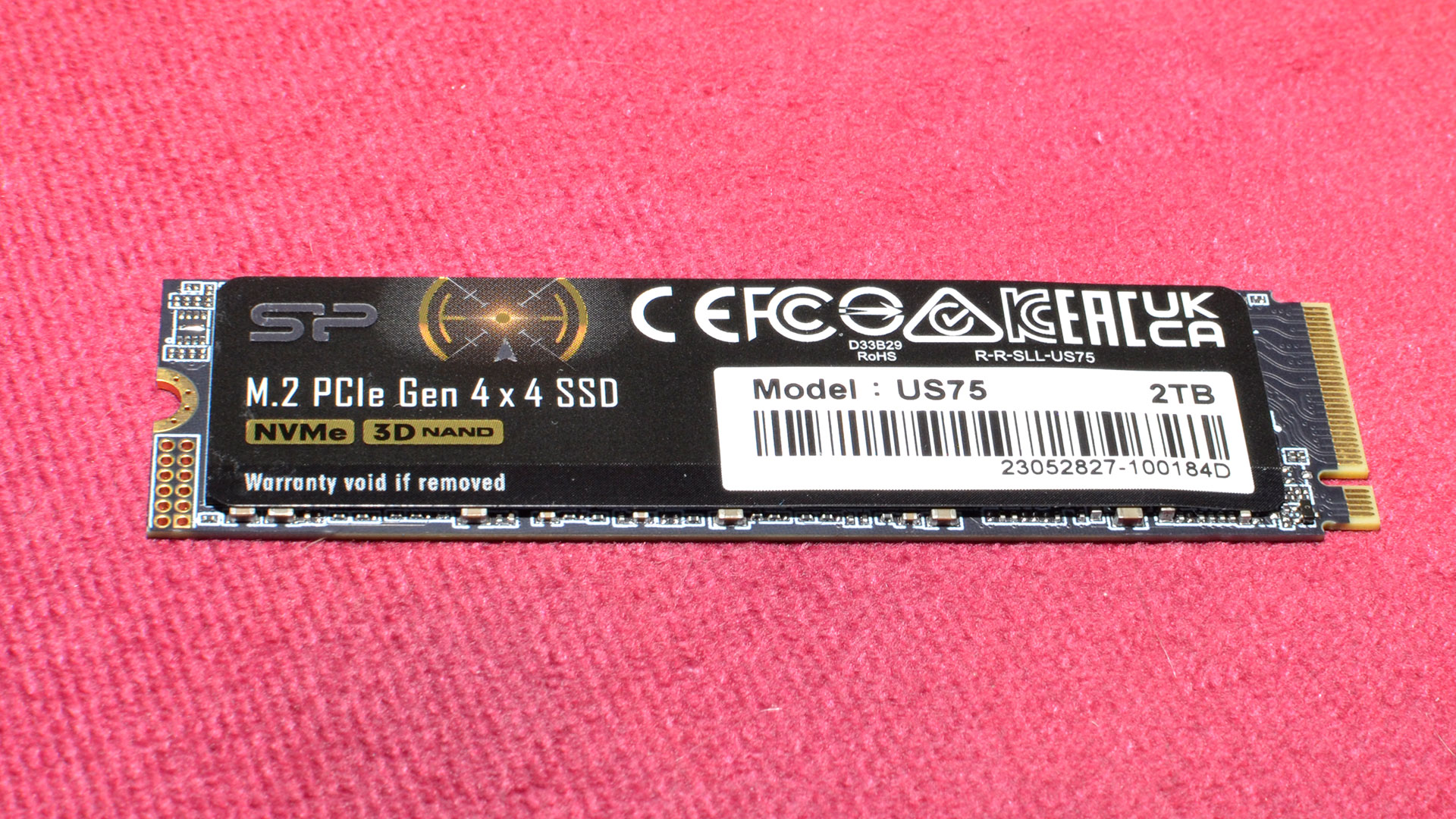
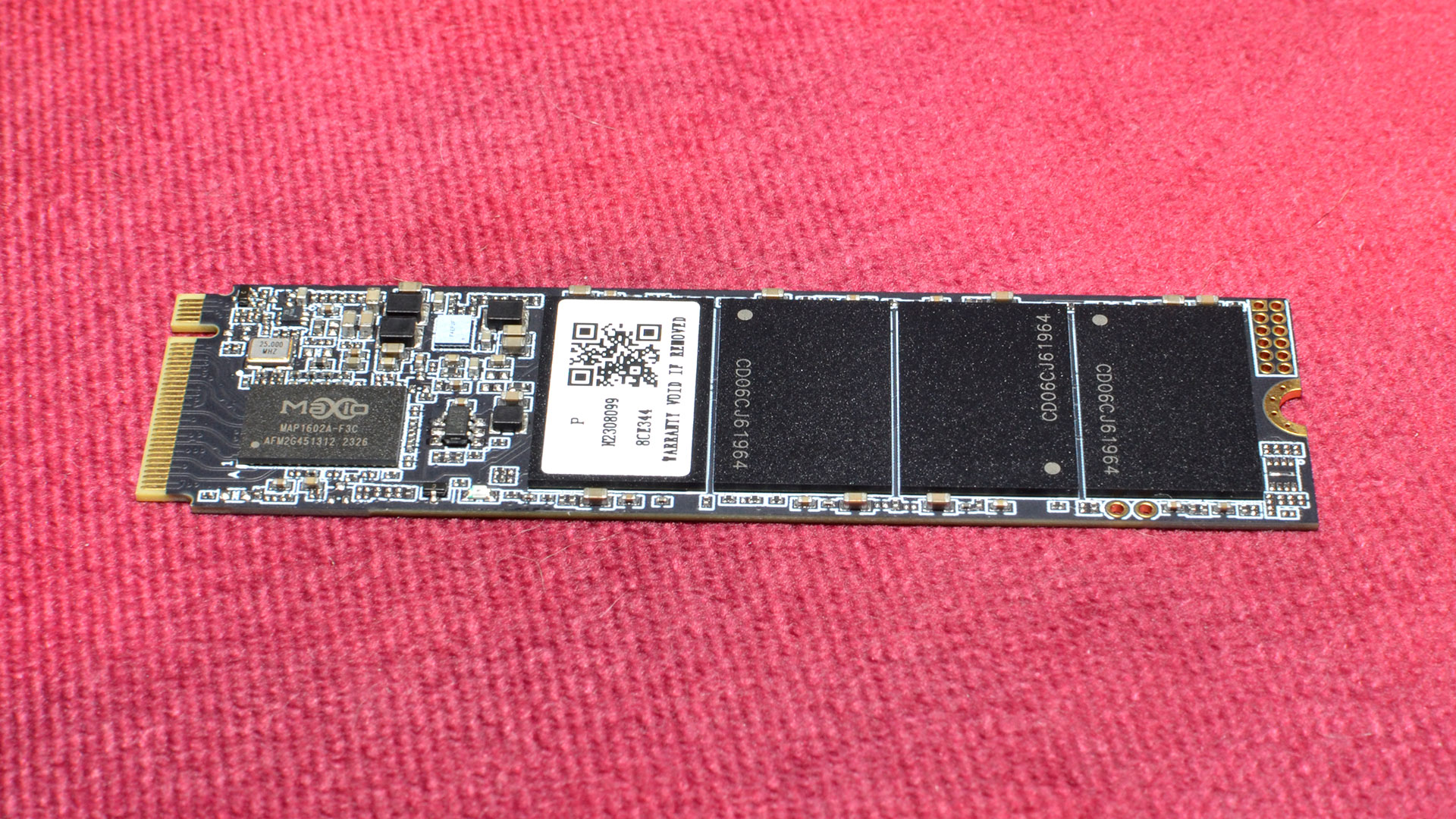
This is a single-sided drive, as we’ve come to know and love, with the standard layout we would expect. Silicon Power neatly labels the PCB. This includes a string with “MAP1602A,” a model of the Maxio MAP1602-C SSD controller. We can also see a package size with “BGA152,” a form factor with “2280,” a PCB layer count with “8L,” and more, with test pads listed. This isn’t of much general interest but can be useful for debugging and repair. Knowledge of the PCB also helps identify when other brands use the same essential bill-of-materials (BOM).

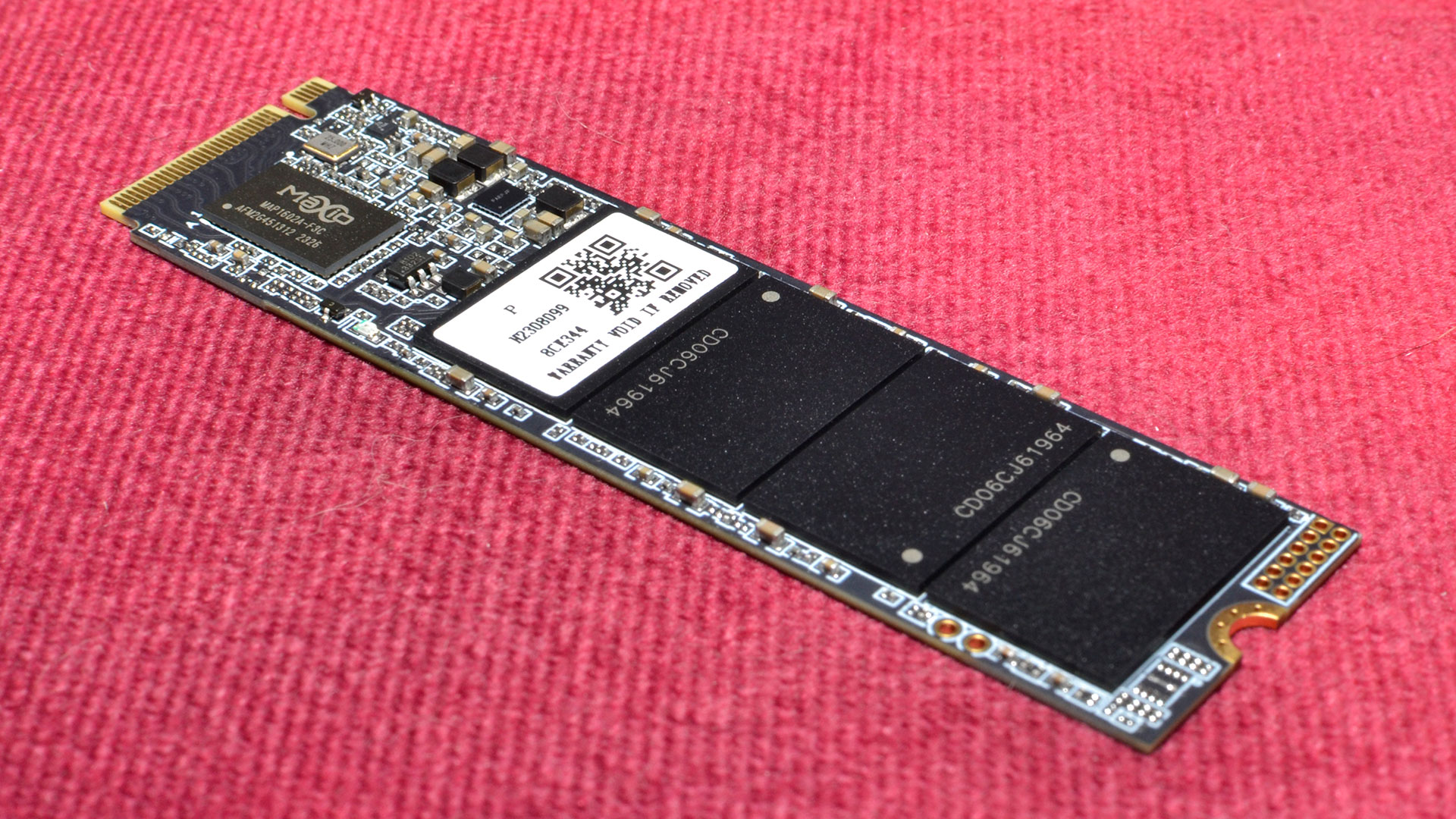
The US75 has an SSD controller, power circuitry, four NAND packages, and no DRAM. The controller is marked as the MAP1602-F3C, which, again, is a variation of the MAP1602-C. This controller is also known as the “Falcon Lite” internally as a reference to the MAP1601 Falcon, which is an enterprise part. The MAP1602 is a cut-down client version without DRAM and with only four rather than eight channels, although still manufactured in 12nm. Maxio’s Gen 3 MAP1202 is in 22nm and less efficient as a result, but the upcoming Gen 5 MAP1802 - which will be an exciting product for those waiting for an efficient PCIe 5.0 SSD - is expected in a smaller process node.
The flash is YMTC’s excellent 232-Layer TLC; so far, we’ve only seen it partnered with this controller. This has been to good effect in the Lexar NM790, the Addlink A93, and the MP44. YMTC has invested to overcome U.S. sanctions for this flash and now has a QLC variant of the flash rolling out. This flash stands out by using wafer bonding technology, or wafer-on-wafer Xtacking, which has its own challenges but provides unique benefits.
Wafer bonding, which effectively flips the cell array, may become the standard in time as it helps shrink the CMOS peripheral area in part by reducing the heat that’s normally transferred down from the array during formation. This assists by allowing the peripheral circuitry to keep pace with scaling from higher layer counts. While this TLC is six-plane, there are already eight-plane designs on the table. To reach higher flash densities, It will still be necessary to improve other technologies, such as high aspect ratio (HAR) etching.
MORE: Best SSDs
MORE: How We Test HDDs And SSDs
MORE: All SSD Content

Shane Downing is a Freelance Reviewer for Tom’s Hardware US, covering consumer storage hardware.
-
shaolin95 This seems to beat the WD 850x at least based on the tests here or am I missing something?Reply -
Lloydsen I just bought the US75 4TB model and it seems they swapped the NAND Flash to part number YMC8G008Tb78CA1C0 which I believe is QLC. The speed drops to less than 100MB/s and it took me 32 minutes to transfer a single 170GB zip fileReply -
Skye771 Reply
Any proof of this? cant find anything about it onlineLloydsen said:I just bought the US75 4TB model and it seems they swapped the NAND Flash to part number YMC8G008Tb78CA1C0 which I believe is QLC. The speed drops to less than 100MB/s and it took me 32 minutes to transfer a single 170GB zip file -
Lloydsen Reply
https://i.imgur.com/Oc4mQQq.jpgI only have the image I took before I returned the SSD.Skye771 said:Any proof of this? cant find anything about it online
I am not sure if there were any changes since then. -
colohgc WARNING!!! US75 2TBReply
The production batch that is on the market is on QLC? chips!
I bought the drive in Poland, supposedly directly from Silicon Power Netherlands,
the drive arrived originally sealed and it already had 2TB of stored data and 4h of operation!
Writing speeds of 50 MB/s, connected to PCIe 3.0 x4
I returned it.
TRAGEDY
https://i.imgur.com/lURERfj.pnghttps://i.imgur.com/7cQUUtM.png
